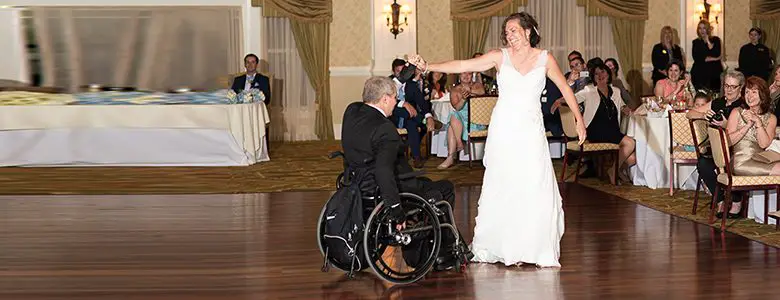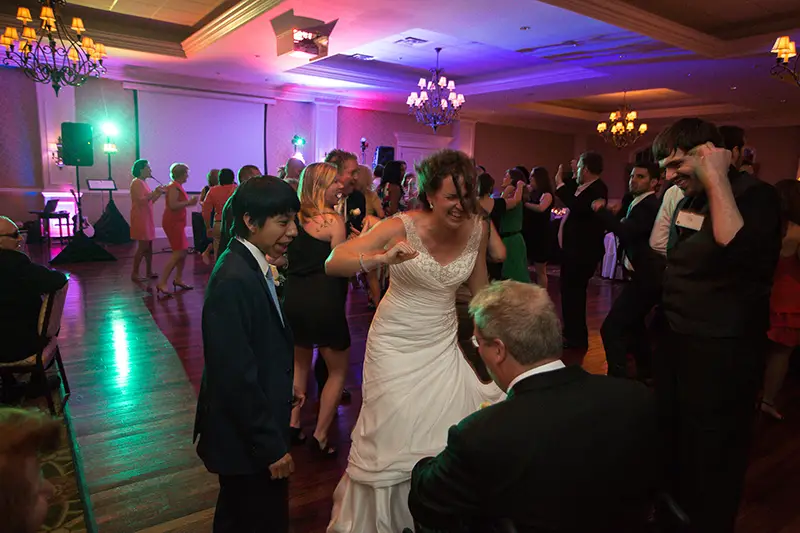
Why we need more stories of disability that aren’t about overcoming disability
Brittany Déjean is the founder and director of AbleThrive.com, a company which centralizes and organizes high-quality resources for living well with a disablility from around the world so people can find what they need to thrive. Here Brittany talks about why we need more stories of disability that aren’t about overcoming disability…
Most stories that reach mainstream audiences about disability require the person to “overcome” it. You’ve seen the headlines: ‘Paralyzed bride walks down the aisle’ or ‘Paralyzed student walks on graduation day.” Stories like these deserve and should continue to be shared, but if those are the only stories we see in the media, we’re only seeing one portrayal of disability and we’re ignoring the diversity of disability experiences and perspectives.
Take paralysis as an example. Sure, some people would give anything to walk. Many go to great lengths to achieve it and some even succeed. However, not everyone has the option to walk. Some don’t even want to walk.
If we only focus on stories where the main theme or victory involves overcoming a disability, we alienate people and families who embrace it proudly as a part of their identity and for whom a cure or remedy is not accessible. We deny their reality by not acknowledging it, perpetuating the idea that the only way to live with a disability is to erase it. This is not how I see my family’s experience.
My dad was paralyzed in a car accident when I was 12 years old. He’s lived without moving anything from the chest down or his fingers for the last 17 years. My dad faces challenges related to his disability, that’s for sure, and our family endured a great deal of hardship when it first happened, but it does not mean that our lives ended that day. In fact, my dad lives a very fulfilling life as a wheelchair-user. However, oftentimes when I share that my dad has a disability, many make assumptions about his life. Most often they are negative or limiting, but these people have most likely never seen an alternative that shows otherwise.

This gap in mainstream media hit me when I began sharing a story about my dad dancing for the first time in the 17 years since his accident to give me a father-daughter dance at my wedding. He loved dancing before he was paralzyed, and although he knew it was possible to dance in a wheelchair, he could never bring himself to do it. That lasted until he chose to honor my request for a dance at my wedding. Not only did my dad dance with me, but that one dance broke down a wall in him and he didn’t leave the dance floor the rest of the night. Then he danced at a wedding two weeks later. Then he took a dance lesson with my stepmom so he could learn more techniques.
My dad’s transformation is a story of a man who endured a life-altering trauma and a special moment broke through an emotional wall that had kept him from doing something he loved. His story is powerful on many levels—not only can he inspire others in wheelchairs to not give up their passion, but he can also show the rest of society that someone with a disability can live a happy and meaningful life.
Many of the thousands of people who have watched the video of my dad’s story relate to a man with a disability, perhaps for the first time in their lives, without feeling compelled to “fix” him or wishing he had been on his feet. My dad’s disability is present without evoking sympathy or pity. If his story makes someone think twice before jumping to pity the next time they see someone with a disability out in public, we’ve begun planting the seeds of inclusion by promoting empathy.
People with disabilities and their families are responsible for making their own choices about disability and have their own views and narratives, which all deserve to be equally respected and represented in society and in mainstream media. Let’s let people make their own decisions and accept and respect the diversity that comes with it.
Mainstream media has the power to validate the experiences of families like mine and people like my dad. By showing a human side of disability that is accessible to mainstream audiences, we create space for the awareness and acceptance of those who are actively living with their disabilities and build the foundation of an inclusive, accepting society.
In the end, we’re all just people living our lives the best we can, making the most of what life hands us. Let’s make sure everyone has a place to be seen and appreciated.
By Brittany Déjean
Get in touch by messaging us on Facebook, tweeting us @DHorizons, emailing us at editor@disabilityhorizons.com or leaving your comments below.